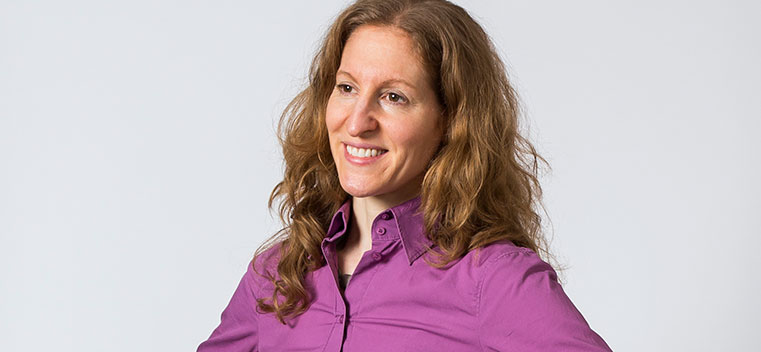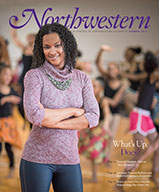
Five Questions: Wendy Pearlman
Interview by Anna Waters.
Tell us what you think. E-mail comments or questions to the editors at letters@northwestern.edu.
Find Us on Social Media
Political science professor Wendy Pearlman chronicles Syrian refugees’ stories of authoritarianism, protest and displacement.
What inspired you to interview hundreds of Syrians in person? What were you hoping to learn?
I’ve studied the Middle East for half my life. But, like most people, I was amazed when uprisings shook the region in 2011. I was especially captivated by the revolt in Syria, given the state’s repression of challengers. A major puzzle in the study of social movements is why people participate in high-risk dissent. I wondered what Syrians’ stories could teach us about that question.
By 2012, it was already dangerous to go into Syria, so I decided to concentrate my research on Syrians who had fled. Over the next four years I interviewed more than 300 Syrian refugees across the Middle East and Europe. My interviews came to focus not only on protest but also on people’s lives before 2011, the horrors of war and the challenge of beginning anew in exile.
Why did you choose to write We Crossed a Bridge and It Trembled: Voices from Syria as an oral history?
My initial goal was to write an academic book of theory building. But Syrians’ stories were so moving and beautiful. They deserved to be heard on their own, and I wanted to share them with as wide an audience as possible. For me, writing the book became like curating an exhibit. My goal was to weave together testimonies in a way that walked readers through Syrian history, using solely Syrians’ own words.
Did you learn anything from the interviews that surprised you?
I’ve documented the evolution of Syrians’ experiences in real time, which has allowed me to be surprised repeatedly. During my first interviewing trip in 2012, people were excited to talk about the joy of protesting. When I returned in 2013 to continue interviews on that topic, one Syrian friend shook his head and said I shouldn’t ask people about protest, but instead about despair. This inspired me to take my cues from what was most important for the Syrians I met when I met them. By keeping interviews open ended, I continually learned things about which I never would have known to ask.
Were Syrians you interviewed hopeful that they would return home?
In the beginning, many people believed that they would go home any day. With time, that optimism evolved into doubt and then into the feeling that the homes they left no longer existed. Given the protraction of violence and displacement, many people are now engaged in a painful rethinking about what “home” even means.
What are the biggest misconceptions that Americans have about Syria?
The worst misconception is that the choice in Syria is between Assad and ISIS. This is what Assad wants the world to think and the situation that he tried to create by decimating a peaceful, civic uprising. Americans should stand in solidarity with the millions of Syrians who continue to dream of a free, democratic state.
Another misconception is that sectarianism is driving violence in Syria. It’s more accurate to say that violence drives sectarianism. People I met took tremendous pride in Syria’s history of multiethnic, multireligious coexistence. That is something they long to preserve.
Far from wanting an Islamic state, Muslim Syrians I met said that they wanted religious freedom. Some history: In 1982 the Muslim Brotherhood led an insurrection against the Assad regime, which crushed the revolt mercilessly. Thereafter, the regime suppressed anything it considered to be political Islam. Many Muslims I met said that, for decades, they were afraid that if they expressed their religion they’d be accused of extremism and thrown in prison. What they want now is religious liberty, among other liberties. Most of all, they want the right to voice their opinions and choose their own government.



 Facebook
Facebook Twitter
Twitter Email
Email


